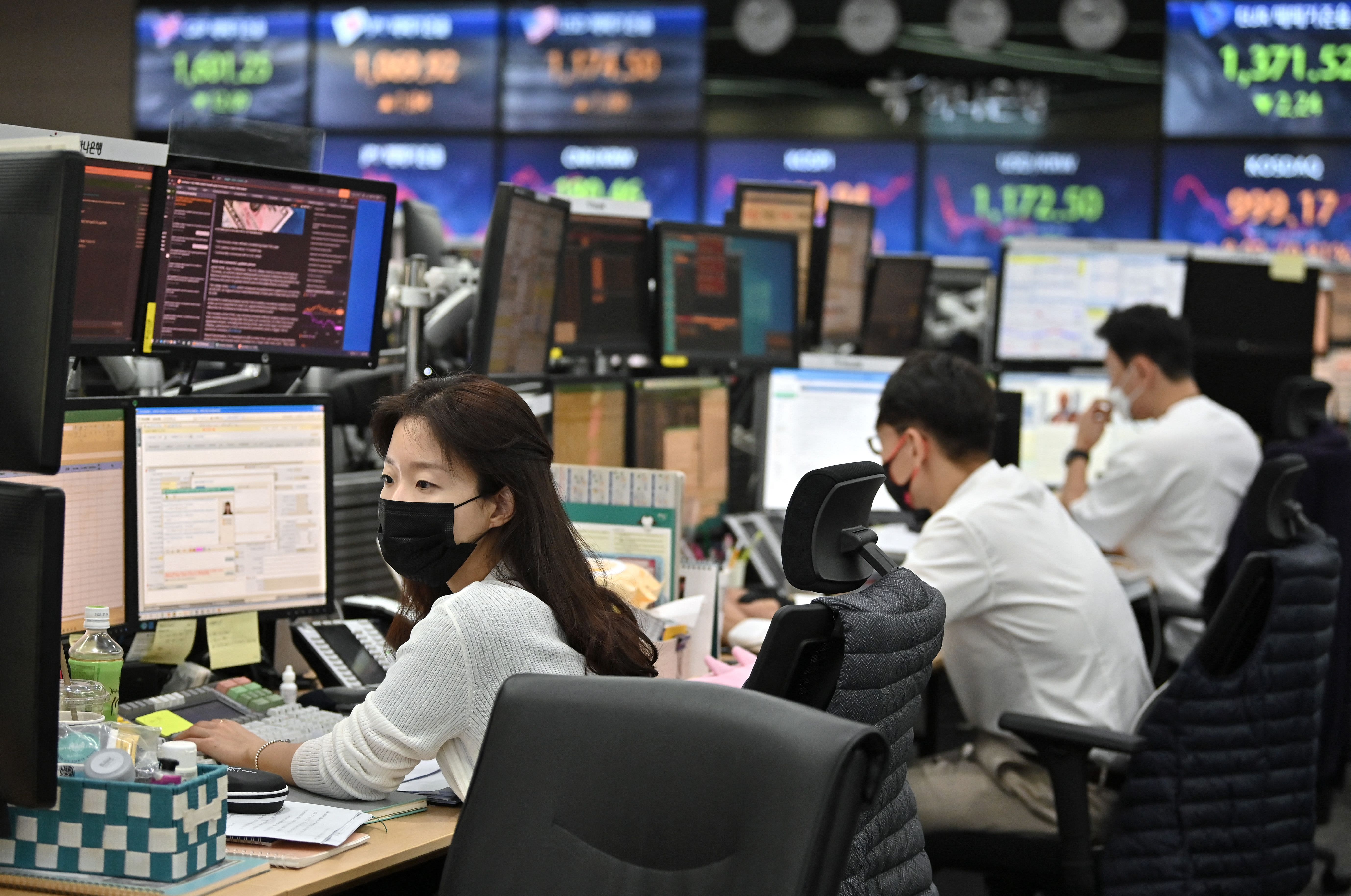
SINGAPORE — Major markets across Asia-Pacific bounced back on Wednesday, following losses the day before that were triggered by renewed uncertainty on the omicron Covid variant.
South Korea’s Kospi led gains regionally, rising 2.14% to close at 2,899.72 after a tumble of more than 2% on Tuesday.
Hong Kong’s Hang Seng index also advanced, rising 0.78% to finish the trading day at 23,658.92. However, mainland Chinese stocks closed mixed, with the Shanghai composite up 0.36% to 3,576.89 and the Shenzhen component marginally lower at about 14,794.25.
In Japan, the Nikkei 225 closed 0.41% higher at 27,935.62, a slight recovery following multiple sessions of losses. The Topix index advanced 0.44% to 1,936.74.
Over in Southeast Asia, the Straits Times index in Singapore jumped 1.77%, as of 4:12 p.m. local time.
The S&P/ASX 200 in Australia closed 0.28% lower at 7,235.90. Australia’s economy shrank 1.9% in the September quarter, official data showed Wednesday. That was above market forecasts for a 2.7% decline, according to Reuters.
MSCI’s broadest index of Asia-Pacific shares outside Japan rose 1.15%.
Brent jumps nearly 4%
Oil prices were higher in the afternoon of Asia trading hours, after tumbling the day before. International benchmark Brent crude futures up 3.8% to $71.86 per barrel. U.S. crude futures rose 3.54% to $68.52 per barrel.
The U.S. dollar index, which tracks the greenback against a basket of its peers, was at 95.895 after a recent drop from above 96.5.
The Japanese yen traded at 113.38 per dollar after a recent weakening from below 113 against the greenback. The Australian dollar was at $0.7151, above an earlier low of $0.7117.
China’s factory activity data
A private survey released Wednesday showed Chinese factory activity shrinking in November, with the Caixin/Markit manufacturing Purchasing Managers’ Index coming in at 49.9 for that month. That was a decline from October’s reading of 50.6.
China’s official manufacturing Purchasing Managers’ Index for November came in at 50.1 on Tuesday, above expectations by analysts in a Reuters poll for a reading of 49.6.
PMI readings below 50 represent contraction while those above that level signify expansion. PMI readings are sequential and represent month-on-month expansion or contraction.
Shares stateside dropped overnight, with the S&P 500 falling 1.9% to 4,567, amid fears over the recently discovered omicron Covid variant. The Dow Jones Industrial Average also plunged 652.22 points to 34,483.72 while the Nasdaq Composite slipped 1.55% to 15,537.69.
Meanwhile, U.S. Federal Reserve Chairman Jerome Powell said the central bank will discuss speeding up the bond-buying taper at its December meeting.
Source: CNBC
